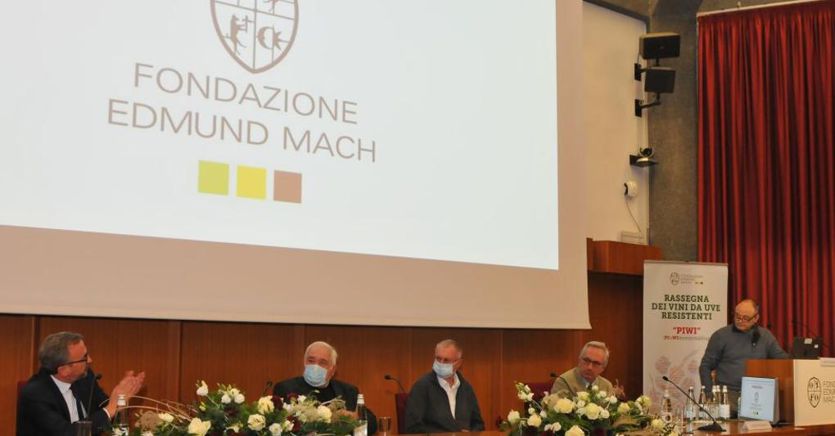The absolute first prize went to the Solaris 2020 of the Weingut Plonerhof winery, a white produced in South Tyrol starting from very special grapes. “Piwi” they call them: they are the varieties resistant to fungal diseases. And the competition in question is the first national review of wines made with this kind of grapes, which was organized by the Mach Foundation of Trento, the spearhead of agronomic research in Italy, in collaboration with the Consorzio Innovazione Vite and the Piwi association. international.
56 wineries participated in the competition, presenting a total of 95 wines. Of these, 18 bottles were awarded. Each of the wines presented was produced with grapes made resistant to fungi thanks to the traditional technique of crossing in the laboratory. The result is grape varieties that do not need pesticides in the field: a very sustainable response to the requests of the European Union contained in the Green deal strategy. The aim of the competition, however, is not only to show that it is possible to obtain varieties of vines resistant to fungal diseases. Above all, it is to demonstrate that these modified varieties have the potential to be able to produce wines of high quality, if not excellent.
«The first national review of wines made from Piwi grapes represents a further important step of the Edmund Mach Foundation towards the enhancement of resistant wines», said the president of the foundation, Mirco Maria Franco Cattani. Research and experimentation on varieties tolerant to the main fungal diseases has recently led the foundation to register four new resistant varieties in the National Register.
«Today climate changes risk weakening the sensory diversity of wines and their close connection with the concept of“ terroir – said Professor Luigi Moio, president of the International Organization of Grapes and Wine -. If, on the other hand, the perfect adaptation between the genotype and the environment is favored, that is, the plant that best adapts to the pedoclimatic context in which it is operated is cultivated, the wine that will be obtained, as well as being more “sustainable”, will also be harmonious in all its components and its balance will mainly be due to the perfect combination of plant, soil and climate ». In short, the new resistant varieties can help to generate vines capable of adapting in a sustainable way – and with little chemistry – to the climate change taking place in traditional wine-producing areas.
The crossing, of course, is for now the only possible technique. But new genome editing techniques are in the sights of researchers as soon as the European Union gives the green light. For which the researchers of the Mach Foundation are already preparing.
